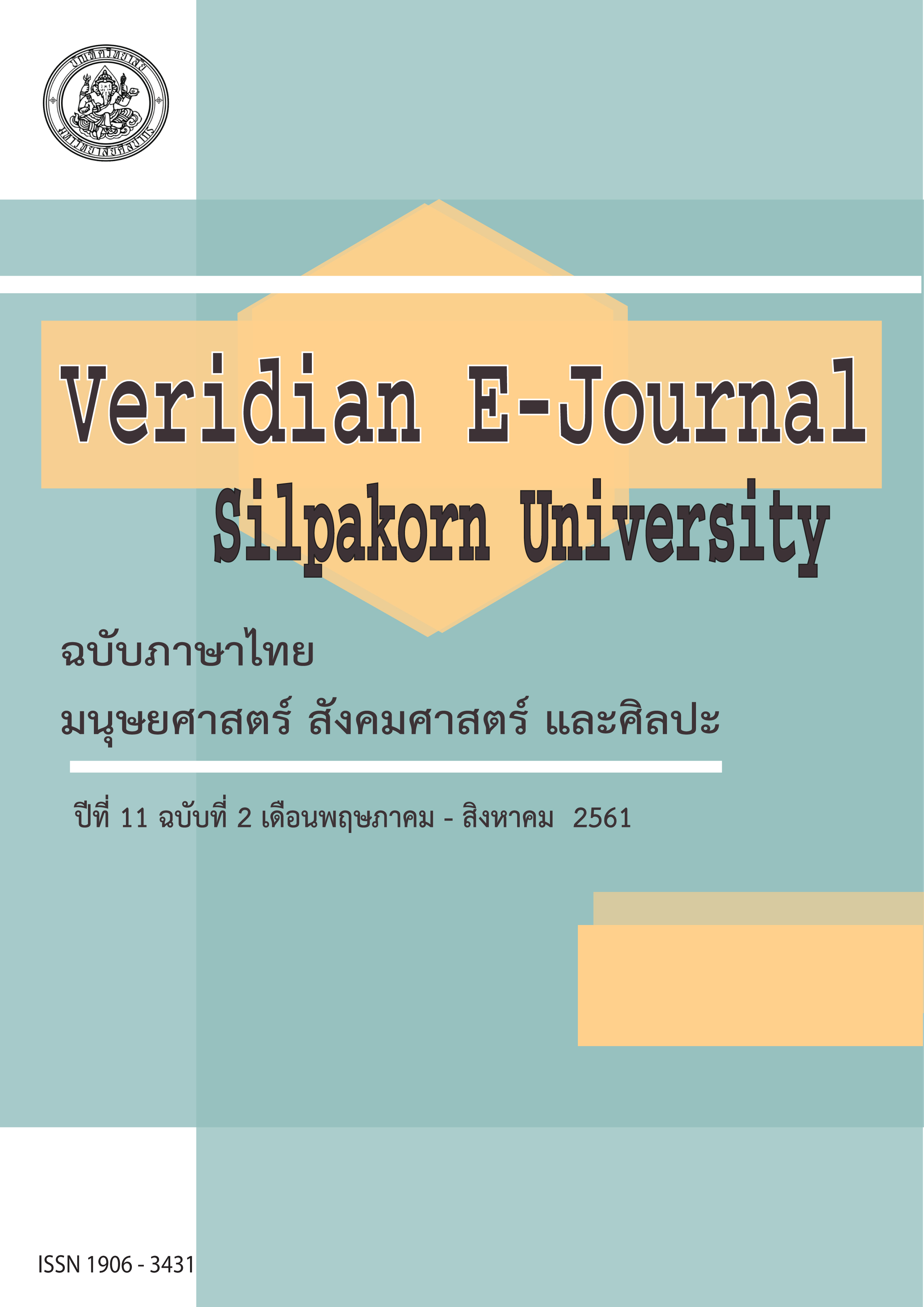การสร้างความได้เปรียบทางการแข่งขันที่มีผลต่อการพัฒนาอย่างยั่งยืน ของธุรกิจอาหารทะเลในประเทศไทย (Advantage on the competitive affects to sustainable development of Seafood Business in Thailand)
Main Article Content
Abstract
การวิจัยนี้ มีวัตถุประสงค์ 1)เพื่อศึกษาเพื่อศึกษาความคิดเห็นของผู้ประกอบการธุรกิจอาหารทะเลในประเทศไทยที่มีต่อการพัฒนาอย่างยั่งยืน และ 2)เพื่อวิเคราะห์เส้นทางความสัมพันธ์เชิงสาเหตุที่มีอิทธิพลต่อการพัฒนาอย่างยั่งยืนของธุรกิจอาหารทะเลในประเทศไทย ผู้วิจัยได้ทำการศึกษาวิจัยเชิงปริมาณ (Quantitative Research Methods)โดยใช้แบบสอบถามกับผู้ประกอบการธุรกิจอาหารทะเลในประเทศไทย จำนวน 515 ราย เพื่อสอบถามถึงระดับความพึงพอใจหรือแบบวัดเจตคติแบบของ Likert และการวิเคราะห์สมการโครงสร้าง (Structural Equation Modeling: SEM) โดยการวิเคราะห์เส้นทาง (Path analysis) ด้วยเทคนิคการใช้หลักการค่าประมาณความควรจะเป็นสูงสุด(Maximum Likelihood: ML) ในการประมาณค่าสัมประสิทธิ์เส้นทาง เพื่อศึกษาอิทธิพลทางตรงและทางอ้อมของตัวแปรว่ามีผลต่อตัวแปรตามมากน้อยเพียงใด ด้วยโปรแกรม Amos
ผลการวิจัยพบว่า ระดับความคิดเห็นของผู้ประกอบการธุรกิจอาหารทะเลในประเทศไทยที่มีต่อการพัฒนาอย่างยั่งยืนอยู่ในระดับมาก และเมื่อพิจารณาในแต่ละปัจจัย พบว่า มีระดับความคิดเห็นอยู่ในระดับมากทุกปัจจัย ได้แก่ ด้านการจัดการความรู้(x= 3.958,S.D.= 0.674)มากที่สุด รองลงมาคือ ด้านการจัดการนวัตกรรมองค์การ ( x= 3.955 ,S.D.= 0.749) ด้านความรับผิดชอบต่อสังคม (x = 3.908,S.D.= 0.747) ตามลำดับ ส่วนระดับความคิดเห็นของผู้ประกอบการน้อยที่สุดที่มีต่อการพัฒนาอย่างยั่งยืนได้แก่ ด้านความได้เปรียบทางการแข่งขัน (x= 3.886,S.D.= 0. 0.947)และพบว่าหลังจากใช้โปรแกรมสำเร็จรูปตรวจสอบความสอดคล้องของโมเดลสมการ โครงสร้างปรากฏว่าดัชนีทุกตัวผ่านเกณฑ์ มาตรฐานχ2/df=0.989,P-value=0.512, GFI=0.977,CFI=1.000,AGFI=0.967,RMR=0.015, RMSEA=0.000 ดังนั้นจึงสามารถสรุปได้ว่าผลการวิเคราะห์ที่ได้ครั้งนี้สอดคล้องกับข้อมูลเชิงประประจักษ์
This research aims 1) to study seafood business entrepreneurs’ opinions toward the sustainable development and 2) to analyze the causal relationship pathways that influence toward the sustainability of seafood business in Thailand. The research methodology was conducted by Qualitative Research Methods with the 515 questionnaires which response from seafood entrepreneurs in Thailand. The questions aim to find the satisfaction or attitudes toward seafood business with Likert's scale. Structural Analysis with Equation Modeling: SEM by path analysis with the measurement used of the Maximum likelihood (ML) technique for estimating the path coefficient. The direct and indirect effects of the variables that affect a variable extent with Amos package program.
The research found that Thai seafood business entrepreneurs toward the sustainable development indicated at high level. To consider at each factor found at high level at all factors which can be ranged from the highest level on Knowledge management ( x = 3.958,S.D.= 0.674),Organizational innovation ( x = 3.955 ,S.D.= 0.749), Social responsibility ( x = 3.908,S.D.= 0.747)respectively whereas the lowest level indicated on Competitive advantage (x = 3.886,S.D.= 0. 0.947) Upon the software package processing upon the structural equation model found that all indicators indicated above the benchmark. χ2/df=0.989,P-value=0.512,GFI=0.977,CFI=1.000,AGFI=0.967,RMR=0.015, RMSEA =0.000 Therefore,it can be concluded that the results of this analysis are consistency to the Empirical data.
